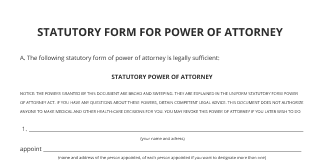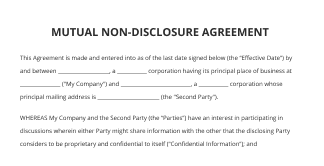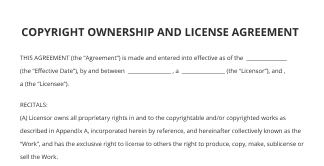eSign Repurchase Agreement Made Easy
Get the powerful eSignature features you need from the solution you trust
Choose the pro service designed for professionals
Set up eSignature API with ease
Collaborate better together
Esign repurchase agreement, within a few minutes
Decrease the closing time
Keep sensitive data safe
See airSlate SignNow eSignatures in action
airSlate SignNow solutions for better efficiency
Our user reviews speak for themselves






Why choose airSlate SignNow
-
Free 7-day trial. Choose the plan you need and try it risk-free.
-
Honest pricing for full-featured plans. airSlate SignNow offers subscription plans with no overages or hidden fees at renewal.
-
Enterprise-grade security. airSlate SignNow helps you comply with global security standards.

Your step-by-step guide — esign repurchase agreement
Employing airSlate SignNow’s electronic signature any organization can enhance signature workflows and sign online in real-time, delivering a better experience to customers and staff members. Use esign Repurchase Agreement in a couple of easy steps. Our mobile apps make work on the move possible, even while off-line! eSign contracts from any place in the world and close trades faster.
Take a walk-through instruction for using esign Repurchase Agreement:
- Log in to your airSlate SignNow profile.
- Find your needed form within your folders or import a new one.
- Open up the document and edit content using the Tools list.
- Drop fillable boxes, type textual content and sign it.
- Add numerous signees using their emails configure the signing sequence.
- Indicate which recipients will receive an executed doc.
- Use Advanced Options to reduce access to the template and set an expiration date.
- Click on Save and Close when done.
Additionally, there are more enhanced capabilities available for esign Repurchase Agreement. Add users to your shared work enviroment, view teams, and keep track of teamwork. Numerous users all over the US and Europe recognize that a system that brings people together in one cohesive enviroment, is exactly what companies need to keep workflows functioning effortlessly. The airSlate SignNow REST API enables you to embed eSignatures into your app, website, CRM or cloud storage. Try out airSlate SignNow and get faster, smoother and overall more efficient eSignature workflows!
How it works
airSlate SignNow features that users love
See exceptional results esign Repurchase Agreement made easy
Get legally-binding signatures now!
FAQs
-
What is a repurchase agreement Example?
Think of a repurchase agreement as a loan with securities as collateral. For example, a bank sells bonds to another bank and agrees to buy the bonds back later at a higher price. -
What is the point of a repurchase agreement?
The Purpose of Repurchase Agreements But they're most commonly used by central banks to manage the money supply. For example, the Federal Reserve can buy T-bills or bonds to temporarily increase the amount of money in its reserves. Or it can sell government securities to reduce the amount of money in circulation. -
What does the repo market do?
The repo market allows financial institutions that own lots of securities (e.g. banks, broker-dealers, hedge funds) to borrow cheaply and allows parties with lots of spare cash (e.g. money market mutual funds) to earn a small return on that cash without much risk, because securities, often U.S. Treasury securities, ... -
What is repo with example?
In a repo, one party sells an asset (usually fixed-income securities) to another party at one price and commits to repurchase the same or another part of the same asset from the second party at a different price at a future date or (in the case of an open repo) on demand. ... An example of a repo is illustrated below. -
What is repo rate meaning?
Repo rate is the rate at which the central bank of a country (RBI in case of India) lends money to commercial banks in the event of any shortfall of funds. ... Repo rate is used by monetary authorities to control inflation. -
What are bank repurchase agreements?
A repurchase agreement, also known as a repo loan, is an instrument for raising short-term funds. With a repurchase agreement, financial institutions essentially sell securities from someone else, usually a government, in an overnight transaction and agree to buy them back at a higher price at later date. -
How do banks use repo?
The Federal Reserve uses repos and reverse repos to conduct monetary policy. When the Fed buys securities from a seller who agrees to repurchase them, it is injecting reserves into the financial system. Conversely, when the Fed sells securities with an agreement to repurchase, it is draining reserves from the system. -
How are repos accounted for?
A repo agreement typically involves the transfer of securities in exchange for cash. The amount of cash remitted depends on the market value of the securities minus a specified percentage to serve as a cushion. ... In addition, the transferor agrees to repurchase the securities for a higher price at a specified later date. -
Why does the Fed use reverse repo?
Reverse Repo allows the Fed to set a floor on the interest rates in the economy. If it raises that rate, it raises all interest rates in the economy (since they are all based on the zero risk benchmark of the Fed or Treasury). If it drops that rate, all interest rates in the economy drop. -
Are repos considered derivatives?
No textbooks regard the repurchase agreement (repo) as a derivative instrument. This article argues that the repo is derived from an existing financial market instrument (the underlying instrument) and takes its value from another segment of the financial market. -
What is the difference between repo and reverse repo?
The airSlate SignNow difference between the Repo Rate and Reverse Repo Rate is that Repo Rate is the interest rate at which the commercial banks borrow loans from RBI, while Reverse Repo Rate is the rate at which the RBI borrows loan from the commercial banks. The Repo Rate is always higher than the Reverse Repo Rate. -
How does a repo transaction work?
In a repo, one party sells an asset (usually fixed-income securities) to another party at one price and commits to repurchase the same or another part of the same asset from the second party at a different price at a future date or (in the case of an open repo) on demand. -
What is a repo bond?
Repo is short for repurchase agreement, a transaction used to finance ownership of bonds and other debt securities. In a standard repo transaction, a dealer finances its ownership of a bond by borrowing money from a customer on an overnight basis and posting the bond as collateral.












































